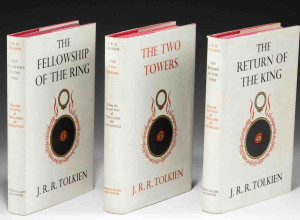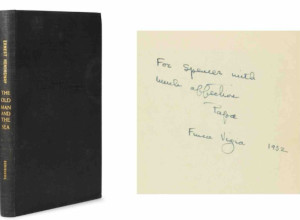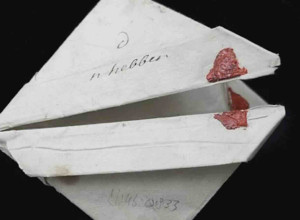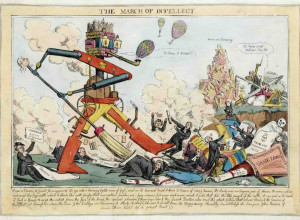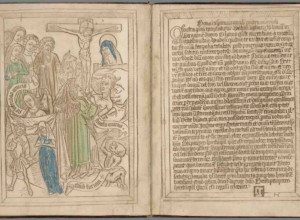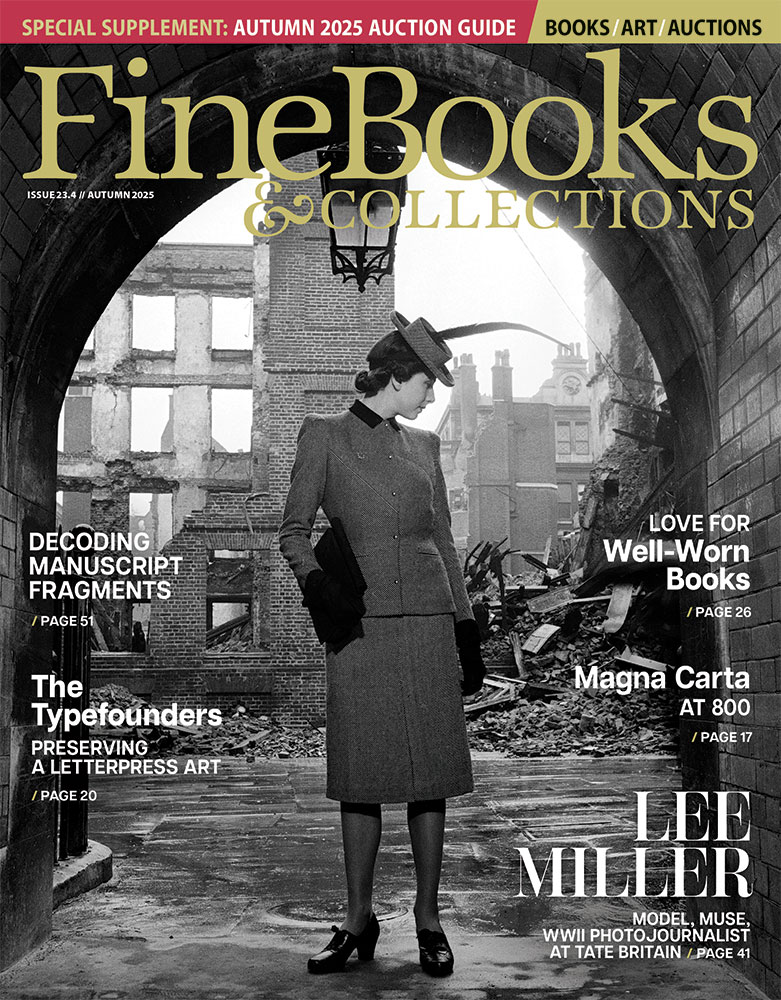The Book That Inspired Umberto Eco
The news that Italian scholar and author Umberto Eco died last week at the age of 84 hit bibliophiles particularly hard, for not only was he one of us--a rapacious reader and book collector said to own as many as 50,000 volumes--but he also penned The Name of the Rose, the much beloved 1980 mystery set in a fourteenth-century monastery and centered around a secret medieval manuscript. Eco's first novel warmed the hearts of book lovers.
 Though he already had an impressive career as an educator and a critic, Eco continued to write novels, which is how Nicholas Basbanes came to interview him in Boston in 1995 (during Eco's US book tour to promote his third novel, The Island of the Day Before). Soon after, as Basbanes was working on his second book, Patience & Fortitude: A Roving Chronicle of Book People, Book Places and Book Culture, he called on Eco in his Milan apartment, where the two bookmen pored over Eco's collections, which Eco summarized as "Biblioteca Semiologica, Curiosa, Lunatica, Magica et Pneumatica." It included several "choice incunabula," writes Basbanes. But the highlight, he recalls, was a tatty old volume that Eco pulled from a bottom shelf. It was a sixteenth-century Italian translation of the Poetics of Aristotle (pictured above) that Eco had purchased for the equivalent of seventy cents sometime around 1970, but it was so soiled, Eco shelved it and forgot about it. Until 1990, when he and his wife were packing their books in preparation for a move. That's when he came across this "unpleasant" book, and it suddenly occured to him that the long-neglected volume had inspired the manuscript in his bestselling book, which he began writing in 1978. He told Basbanes, "I believed I had invented a manuscript for this novel, when in fact I was describing that ugly book in my own house."
Though he already had an impressive career as an educator and a critic, Eco continued to write novels, which is how Nicholas Basbanes came to interview him in Boston in 1995 (during Eco's US book tour to promote his third novel, The Island of the Day Before). Soon after, as Basbanes was working on his second book, Patience & Fortitude: A Roving Chronicle of Book People, Book Places and Book Culture, he called on Eco in his Milan apartment, where the two bookmen pored over Eco's collections, which Eco summarized as "Biblioteca Semiologica, Curiosa, Lunatica, Magica et Pneumatica." It included several "choice incunabula," writes Basbanes. But the highlight, he recalls, was a tatty old volume that Eco pulled from a bottom shelf. It was a sixteenth-century Italian translation of the Poetics of Aristotle (pictured above) that Eco had purchased for the equivalent of seventy cents sometime around 1970, but it was so soiled, Eco shelved it and forgot about it. Until 1990, when he and his wife were packing their books in preparation for a move. That's when he came across this "unpleasant" book, and it suddenly occured to him that the long-neglected volume had inspired the manuscript in his bestselling book, which he began writing in 1978. He told Basbanes, "I believed I had invented a manuscript for this novel, when in fact I was describing that ugly book in my own house."
 If you have not had the pleasure of reading the full account of this bookish afternoon shared by Basbanes and Eco, go get a copy of Patience & Fortitude. Basbanes' three-hour audiotape of his interview with Eco is now in the Cushing Library at Texas A&M, along with the five books Eco inscribed to him over the years, including, of course, The Name of the Rose.
If you have not had the pleasure of reading the full account of this bookish afternoon shared by Basbanes and Eco, go get a copy of Patience & Fortitude. Basbanes' three-hour audiotape of his interview with Eco is now in the Cushing Library at Texas A&M, along with the five books Eco inscribed to him over the years, including, of course, The Name of the Rose.
Images courtesy of Nicholas Basbanes.





